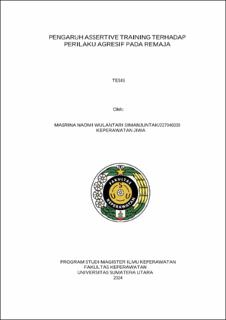| dc.description.abstract | Aggressive behavior is threatening behavior directed towards objects or people, whether verbal or physical, that can endanger humans and other living beings, causing damage, difficulty, pain, and property destruction. Aggressive behavior in adolescents arises because they are not treated according to their developmental demands and needs and is caused by emotional changes and psychological development. The impact of aggressive behavior includes declining academic performance, poor social relationships, anxiety, depression, legal issues, psychological and emotional traumatic reactions, panic, phobias, and even leading to suicide. When adolescents engage in aggressive behavior, it can cause problems in forming interpersonal relationships. Adolescents need to possess assertive social skills. Being assertive means exhibiting honest and open courage when expressing desires, feelings, and thoughts as they are, without offending others, while maintaining one's own rights. This study was conducted at Methodist 1 High School using a quasi-experimental method with a pre-test and post-test non-equivalent control group design. The sampling technique used was purposive sampling with a total of 26 respondents in both the intervention and control groups. Data were analyzed using Wilcoxon Signed-Rank and Mann-Whitney tests. The results showed that there was a significant effect of Assertive Training on reducing aggressive behavior in adolescents, with a p-value of 0.001 for the intervention group and 0.059 for the control group. The conclusion is that Assertive Training can reduce aggressive behavior and increase assertive behavior in adolescents. | en_US |


